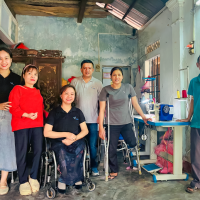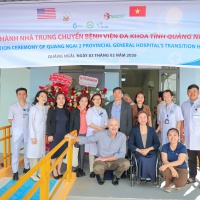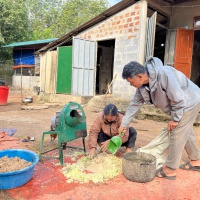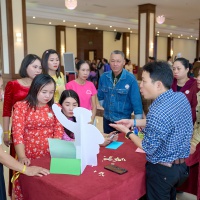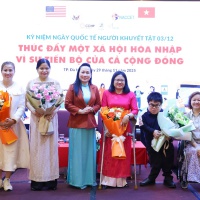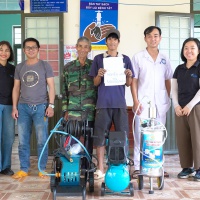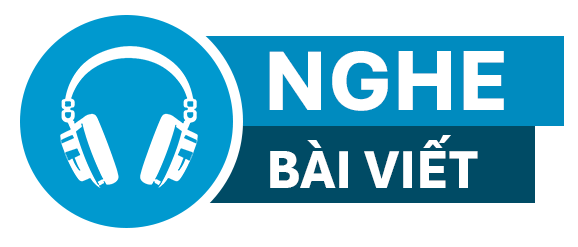
On 23 - 24 September 2025, at Muong Thanh Luxury Can Tho Hotel, the Vietnam Federation on Disability (VFD), in collaboration with the Can Tho Disabled People’s Organization, Action to the Community Development Institute (ACDC), and the ASEAN – Australia Counter Trafficking Program (ASEAN-ACT), organized a workshop on “Strengthening Inter-Sectoral Coordination to Ensure Inclusion for Trafficking Victims with Disabilities.”
The workshop featured an online welcome address from Ms. Mariam Diakite, First Secretary, Australian Mission to ASEAN. The event attracted more than 50 participants both onsite and online, including representatives of police, judiciary, health agencies, local departments, specialized training institutions, social organizations, organizations of and for persons with disabilities, as well as service providers and media agencies from Can Tho and other provinces and cities.

People’s Teacher Dang Huynh Mai – President of VFD delivered the opening remarks
In her opening remarks, Dr. Dang Huynh Mai, People’s Teacher and President of VFD, emphasized: “Persons with disabilities are a vulnerable group at high risk of becoming victims of human trafficking. Therefore, promoting inter-sectoral coordination to establish mechanisms for identifying, assisting, and protecting victims with disabilities is essential, aiming towards a more inclusive and equitable society.”
Over the two-day workshop, participants discussed key issues related to ensuring inclusion for trafficking victims with disabilities. Delegates analyzed research findings on the vulnerability of this group to trafficking risks in Vietnam and across ASEAN, identified barriers in victim identification and support, and proposed policy recommendations. The current legal framework was comprehensively reviewed, highlighting both positive aspects and limitations that require improvement. In addition, a guidance document on supporting victims with disabilities was introduced, covering topics such as screening, working methods, and tailored assistance by disability type. Participants also engaged in practical sessions to assess physical accessibility, discuss case scenarios, and explore inclusive solutions throughout the entire process – from rescue, reception, and repatriation to recovery and reintegration – while developing action plans linked to international experiences.

Delegates shared the current situation and put forward recommendations to enhance support and ensure inclusion for victims of trafficking who are persons with disabilities
The final session focused particularly on strengthening inter-sectoral coordination mechanisms and referral processes in supporting victims with disabilities. Delegates collectively proposed practical measures to improve cooperation between state agencies, social organizations, and communities.
The workshop concluded with broad consensus on the urgent need to place disability inclusion at the center of anti-trafficking efforts, thereby creating a strong foundation for implementing recommendations and applying the guidance document in practice in the near future.
